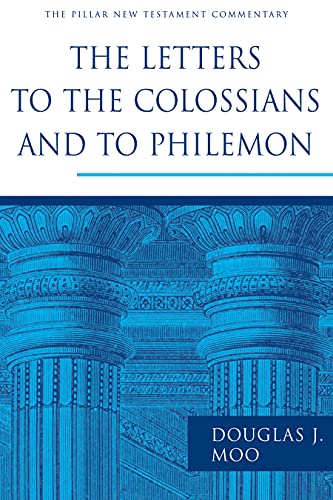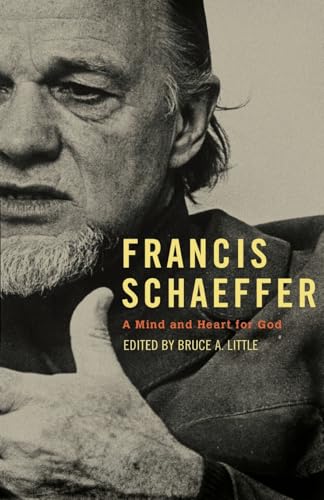The Letters to the Colossians and to Philemon
Written by Douglas J. Moo Reviewed By Jason C. MeyerDouglas J. Moo is Blanchard Professor of New Testament at Wheaton Graduate School. His previous commentaries include the NICNT and NIVAC volumes on Romans, the NIVAC volume on 2 Peter and Jude, and the PNTC and TNTC volumes on James. This review begins by summarizing Moo’s conclusions on some introductory matters in Colossians and Philemon. I also survey the body of the commentary in order to survey Moo’s conclusions on notable exegetical issues in both letters. Finally, I offer a concluding assessment of the commentary.
Concerning introductory issues in Colossians, Moo presents a very full defense of Pauline authorship (pp. 28–41), slightly favors the position that Paul is writing from a Roman imprisonment in a.d. 60–61 (pp. 41–45), and adopts Clinton Arnold’s proposal concerning the “Colossian heresy” as a syncretistic mix of “Phrygian folk belief, local folk Judaism and Christianity” (p. 57). Moo also has an excellent analysis of the letter’s theology concerning Christ, cosmology and the powers, the church, the gospel, eschatology, and the Christian life (pp. 60–71). These theological emphases are “polemical thrusts” designed to persuade the Colossian Christians from falling prey to false teaching in Colossae (pp. 60–61).
Concerning introductory issues in Philemon, Moo concludes that Paul is the author (p. 361) and the primary recipient Philemon (but the other recipients named show that this issue is not merely a private matter) (p. 362). Paul wrote the “private” letter of Philemon and the general letter to the Colossians from an imprisonment in Rome in a.d. 60–61, and then Tychicus carried them both to Colossae (pp. 363–64). Moo leans slightly toward the “runaway slave” hypothesis as opposed to the more recent “dispute mediation” hypothesis for two reasons: (1) Paul’s preference to keep Onesimus demonstrates that sending him back is a difficult step, which does not fit the scenario of Onesimus himself planning to go back after the dispute had reached a satisfactory resolution, and (2) Paul’s emphasis on the “changed spiritual condition” of Onesimus appears to show the main issue is not a “past quarrel,” but a new situation arising from Onesimus’ conversion (pp. 368–69).
In terms of notable exegetical issues in Colossians, I begin with the most famous passage in the letter: Colossians 1:15–20, which Moo calls a “veritable academic cottage industry” (p. 109). Concerning the origin of the hymn, many debates rage over whether Paul has written, quoted, or redacted this “hymn.” Moo favors the latter option in saying that Paul has “quoted and redacted an earlier hymn” (p. 110). In terms of its purpose, Paul placed it at this point so that the high Christology of the “hymn” would undercut the tendency of the false teachers to “question Christ’s exclusive role in providing spiritual growth and security, and, thereby, his exclusive role in the universe at large” (p. 111). In terms of sources, he posits that the “wisdom/word” tradition and the creation story from Genesis form the two main background sources of the hymn (pp. 112–13). In terms of structure, the hymn has two main stanzas (vv. 15–16, 18b–20) and a transitional stanza between (vv. 17–18a).
Concerning other exegetical issues in Colossians, Moo argues that the “powers” are personal beings, not demythologized societal institutions (pp. 65, 123), even though he takes the stoicheia as a reference to “cosmological elements,” not “spiritual beings” (pp. 189–90). Moo sees Paul’s suffering in Col 1:24 as responding to what is lacking in Christ’s affliction because Paul’s suffering is an “extension of Christ’s work in the world” (p. 152). These sufferings are not redemptive; they represent the inevitable corollary of his apostolic commission (p. 153). Moo favors the subjective genitive view of Col 2:12—the circumcision Christ performs as a metaphor for conversion (pp. 198–200). He states that Col 2:16 calls Sabbath observance into question for Christians (p. 222), and he concludes that Col 2:18 is an objective genitive—“worship offered to angels” (p. 227).
Concerning exegetical issues in Philemon, Moo divides the letter into four parts: introduction (vv. 1–3), thanksgiving (vv. 4–7), letter body (vv. 8–20), and letter closing (vv. 21–25). Moo reads verses 16 and 21 as a reference to Paul’s subtle request to grant Onesimus his manumission (pp. 424, 436). His comments on whether Paul endorses slavery are very balanced in both Col 3:22–4:1 and the whole of Philemon. Moo argues that Paul undermines the institution of slavery even though he never explicitly commands all Christian slave owners to release their slaves. He suggests that NT authors like Paul “did not always recognize all the implications of the theological principles that they themselves enunciated” (p. 377). Moo is quick to note, however, that the book of Philemon is not ultimately about slavery, but about “the fellowship that is the product of our mutual faith in Christ” (p. 378).
It is impossible to write a commentary that will persuade all readers to adopt all of one’s conclusions. For example, I remain unconvinced concerning his position on the Colossian heresy, I doubt that the stocheia can be limited to “cosmological elements,” and I would also read the genitives differently in Col 2:12 and 2:18. However, let me be quick to add that readers should not turn to commentaries for their conclusions but for their arguments. Moo’s commentary shines at just this point. Moo is a top-tier commentator because he carefully and fairly canvases other views, evaluates their strengths and weaknesses, and then clearly and judiciously shares the reasons that cause him to adopt one position over the others. Moo also has a welcome ability to see and share contemporary application that grows organically out of his exegetical conclusions, while still adhering to the standards of the commentary series, which seeks to avoid “confusing the commentary with the sermon” (p. viii). For these reasons, I commend Moo’s commentary very highly.
Jason C. Meyer
Jason C. Meyer
Bethlehem College and Seminary
Minneapolis, Minnesota, USA
Other Articles in this Issue
I didn’t come from an Evangelical home, and though he never told me outright, I’m sure my father never wanted me to become a pastor...
Does Baptism Replace Circumcision? An Examination of the Relationship between Circumcision and Baptism in Colossians 2:11–12
by Martin SalterReformed paedobaptists frequently cite Col 2:11–12 as evidence that baptism replaces circumcision as the covenant sign signifying the same realities...
New Commentaries on Colossians: Survey of Approaches, Analysis of Trends, and the State of Research
by Nijay GuptaNew Testament scholarship in its present state is experiencing a time of abundance, especially with respect to biblical commentaries of every shape, length, level of depth, theological persuasion, intended audience, and hermeneutical angle...
It might seem odd to write an editorial for a theological journal on the topic of not doing theology and how important that can be; and, indeed, perhaps it is contrarian even by my own exacting standards...
Most readers of Themelios will be aware that the word “perfectionism” is commonly attached in theological circles to one subset of the Wesleyan tradition...







